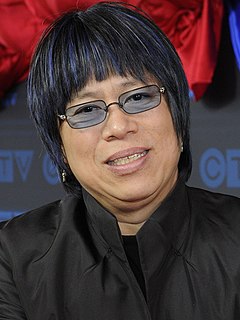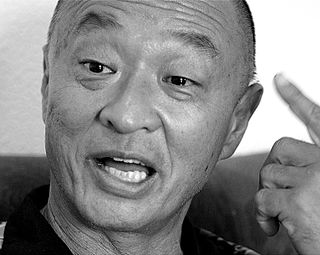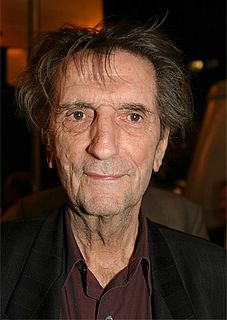A Quote by Alvin Leung
A symbol in Chinese Buddhism is the lotus plant, which regenerates every year, symbolizing life, renewal, and the Buddha himself. Actually it is used in many Asian religions including Hinduism. Few people think of it as food even though it is used as an ingredient all the time.
Related Quotes
I think East Asian countries, I think they're very fortunate to have Buddhism survive as a strong influence because right from the time when Buddha himself, 2,500 years ago, made the point about the importance of education, and the word "Buddha" also means enlighten[ed] or educated. So all the Buddhist countries, not only Japan and Korea and China and Hong Kong and Thailand but also even Burma and Sri Lanka, had a higher level of education.
To you, Christianity, Judaism, Islam, Buddhism, and Hinduism look very different, but to me they look the same. Many of you would say that something like Buddhism doesn't even belong on the list, since it doesn't link salvation to divine worship, but to me this is just a quibble. Christianity, Judaism, Islam, Buddhism, and Hinduism all perceive human beings as flawed, wounded creatures in need of salvation, and all rely fundamentally on revelations that spell out how salvation is to be attained, either by departing from this life or rising above it.
In every aspect of society, including business and anywhere that creativity can be used, we can be - or we used to be, anyway - the most innovative country, because we weren't restricted by artificial limitations. We are made to be wild, free, and creative, and this clearly was a symbol of that kind of energy in America.
The notion that Western religions are more rigid than those of Asia is overdrawn. Ours is the most permissive society history has ever known - almost the only thing that is forbidden now is to forbid - and Asian teachers and their progeny play up to this propensity by soft-pedaling Hinduism's, Buddhism's, Sufism's rules.
In 1978, when I thought of creating a flag for the gay movement, there was no other international symbol for us than the pink triangle, which the Nazis used to identify homosexuals in concentration camps. Even though the pink triangle was and still is a powerful symbol, it was very much forced upon us.








































